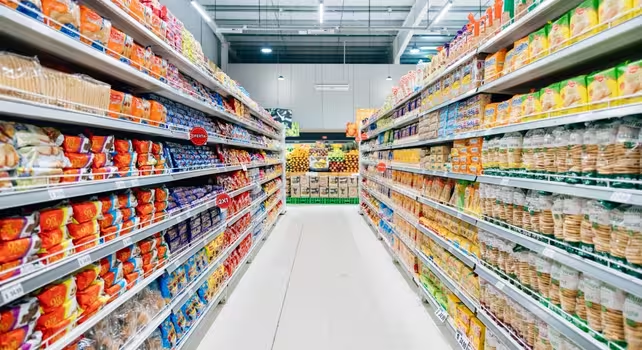6 Minutes
New landmark papers in The Lancet warn that ultra-processed foods are rapidly displacing traditional diets worldwide, degrading nutritional quality and driving a rise in diet-related chronic diseases. This is not primarily a story of individual weak will — it’s a systemic public health challenge powered by a highly profitable industry.
What counts as ultra-processed — and why it matters
Ultra-processed foods are industrial formulations made mainly from extracted or modified ingredients, with cosmetic additives such as colours, flavours and non-sugar sweeteners, and often containing little to no intact whole food. Common examples include soft drinks, salty snacks, ready-to-eat meals and many breakfast cereals.

Breakfast cereals are often highly processed from industrial ingredients and cosmetic additives.
Nutrition scientists increasingly use systems like the NOVA classification to separate minimally processed foods (fruits, vegetables, whole grains, unprocessed meat) from ultra-processed products — and the differences matter. Ultra-processed products are engineered for taste, texture and long shelf life, which helps manufacturers scale distribution and marketing but changes how people eat: they are more energy dense, palatable, and easy to overconsume.
Robust evidence linking ultra-processed diets to poor health
The first of three Lancet papers synthesises global data showing that ultra-processed foods have risen steadily in national diets for decades. In countries such as the United States, United Kingdom, Canada and Australia, ultra-processed products already provide roughly half of daily energy intake. Where penetration is high, they amount to the national diet.
A systematic review included in the review pooled 104 long-term cohort studies; 92 of those reported increased risk of at least one chronic condition linked to higher intake of ultra-processed food. Meta-analyses confirm associations with obesity, type 2 diabetes, hypertension, dyslipidaemia, cardiovascular disease, chronic kidney disease, Crohn's disease, depression, and all-cause mortality.
Clinical trials add mechanistic insight: when adults were fed diets dominated by ultra-processed items versus matched diets with the same macronutrient proportions but minimally processed foods, volunteers consumed about 500–800 extra calories per day on the ultra-processed menu, gained weight and fat mass, and ate more quickly. The likely drivers are higher energy density, engineered tastiness and soft textures that promote faster, larger bites and weaker satiety signaling.
Policy levers that can slow — and reverse — the trend
The Lancet series lays out practical policy options governments can adopt now. No single measure will solve the problem; success requires coordinated packages tailored to local contexts. Four policy domains stand out:
1. Redefine what is regulated
Simple reformulation — swapping sugar for non-sugar sweeteners or fat for fat-mimicking additives — does not fix the core problem. Regulators could instead define and restrict ultra-processed foods by markers such as industrial additives (colours, flavours, non-sugar sweeteners), processing techniques and high levels of sugar, salt or saturated fat. Setting limits on selected additives and adopting an 'ultra-processed' label for regulation would make it easier to target genuinely problematic products.
2. Fix food environments
- Mandate front-of-pack warning labels internationally proven to reduce purchases and inform consumers.
- Protect children under 18 from targeted digital and broadcast marketing of ultra-processed foods; extend protections beyond traditional 'kids' hours'.
- Tax sugar-sweetened beverages by at least 20% and consider levies on selected ultra-processed foods; use revenue to subsidise fruits, vegetables and freshly prepared meals for low-income households.
- Remove ultra-processed items from schools, hospitals and public institutions and limit shelf share and proximity to schools in retail environments.
3. Curb corporate power
Companies that specialise in ultra-processed foods wield global supply chains, vast advertising budgets and sophisticated lobbying operations. Governments can strengthen competition policy, monitor and limit the share of company portfolios tied to ultra-processed sales, and explore tax reforms that reduce excessive market concentration.
4. Align subsidies and supply chains
Redirecting agricultural subsidies away from monoculture commodity crops used as cheap inputs for ultra-processed foods — such as corn, soy and sugar — would shift incentives. Aligning environmental and nutrition policies (for example linking plastics reduction and water use targets to nutrition goals) helps create a sustainable food system that also supports healthy diets.
Why the industry keeps winning — and how to push back
Ultra-processing is the food sector’s most profitable business model. Large transnational firms sit atop marketing networks, supply chains and political influence, allowing them to shape science, public debate and policy. They spend heavily on advertising — in 2024 the leading companies' combined ad spend far exceeded the entire operating budget of the World Health Organization — and they deploy a familiar playbook of lobbying, litigation, self-regulation and sponsored science to delay policy responses.

Markets are heavily shaped by transnational brands.
To counter this influence, the Lancet papers call for a global public health response: tax production of ultra-processed foods, mandate corporate plastics recycling, enforce conflict-of-interest safeguards to protect policymaking and research, end reliance on industry self-regulation, and build cross-sector coalitions that can advocate for legal and policy change.

Our papers show that without coordinated action, ultra-processed foods will continue to displace traditional foods and meals, undermining health, culture, economies and the planet.
Expert Insight
"The evidence has reached a tipping point," says Dr. Maya Thompson, a nutrition epidemiologist at the Global Food Policy Institute. "This isn't about blaming consumers: it's about changing the contexts in which people make food choices. Strong, well-designed policies can shift markets and make healthier, minimally processed options more accessible and affordable for everyone."
Implementing these policies will require political will, cross-sector collaboration and public engagement. Policymakers can start with warning labels, advertising limits for children, targeted taxes and subsidy reform — practical steps that research shows reduce consumption of harmful products and support healthier food environments.
Ultimately, protecting public health means confronting corporate strategies that prioritize profit over nutrition. The Lancet series makes the case that a global, coordinated public health response — backed by law, finance and community action — is now justified by the evidence. The time to act is now.
Source: sciencealert
Comments
Reza
is it really that cut and dried? 500-800 extra cals sounds wild, trials ok but industry influence worries me. who even decides what counts as ultra processed…
atomwave
wow this hits hard. been seeing cereals, snacks, sodas everywhere, kids hooked. not just willpower, it's systemic. policy's lagging, someone do something!


Leave a Comment